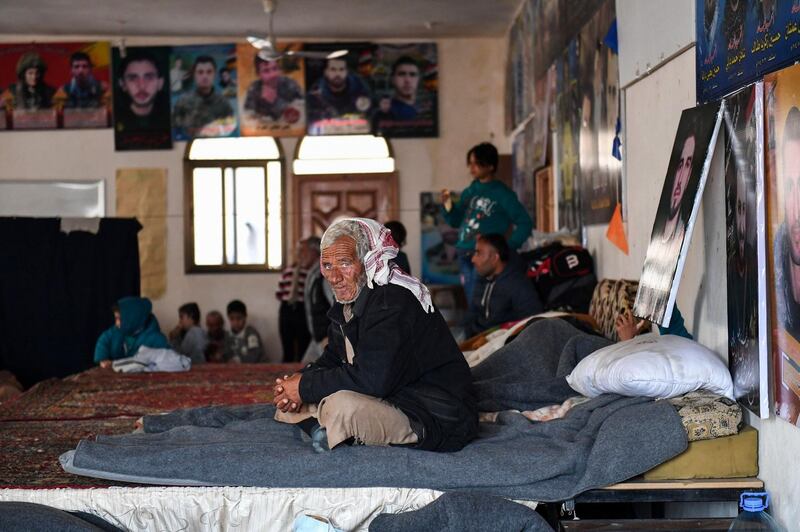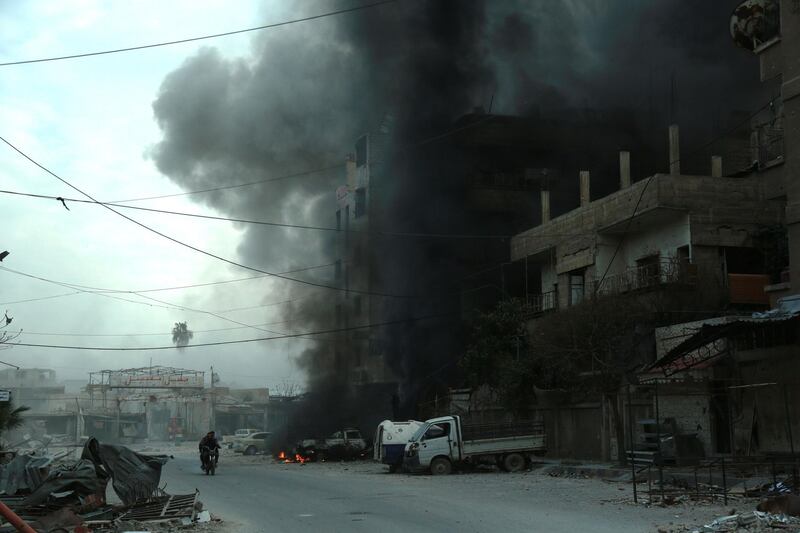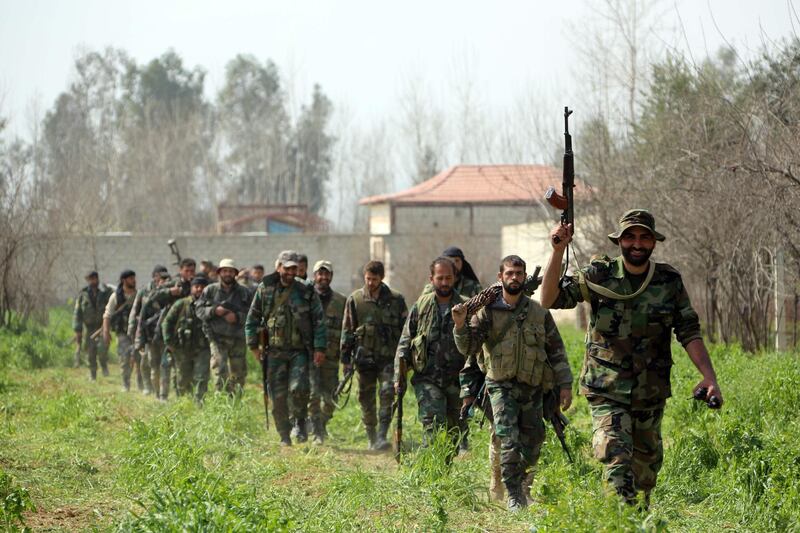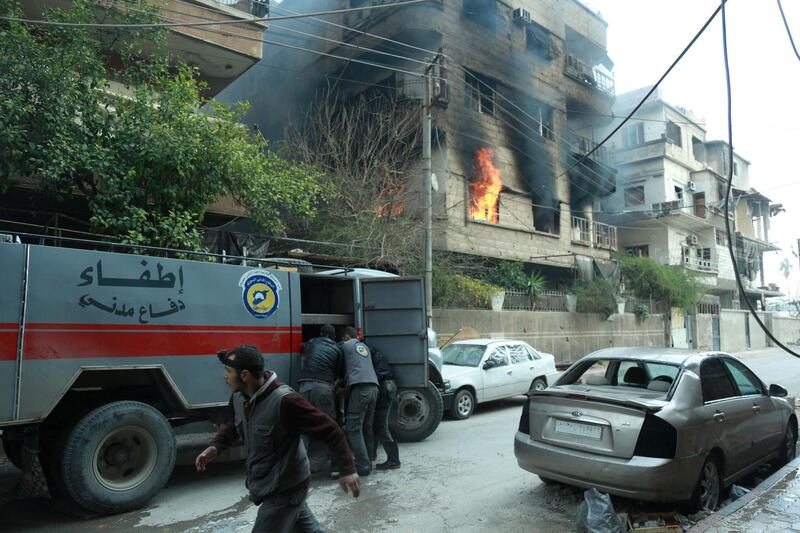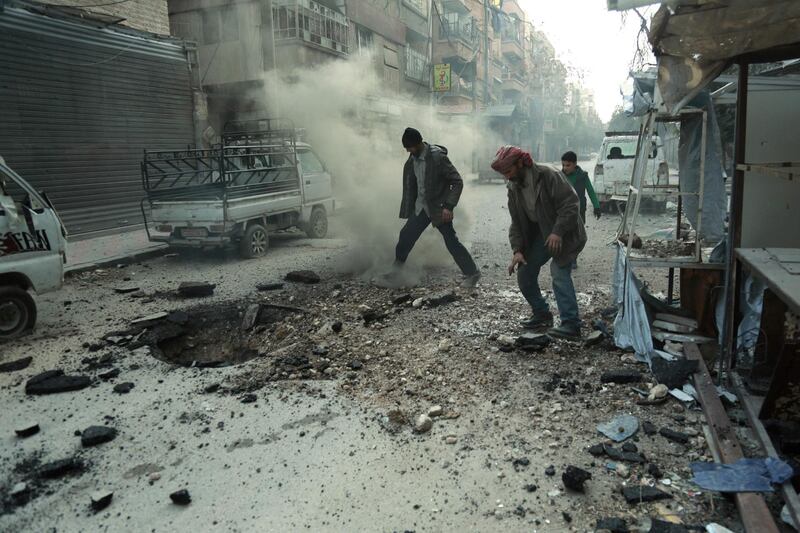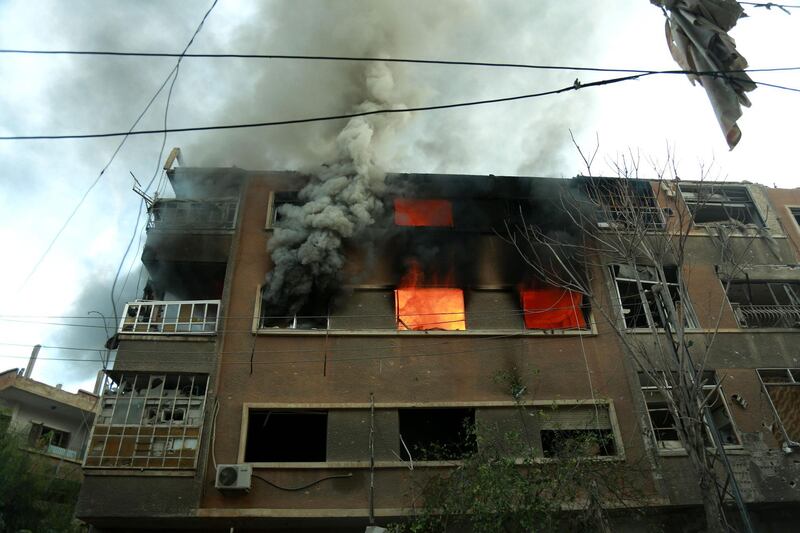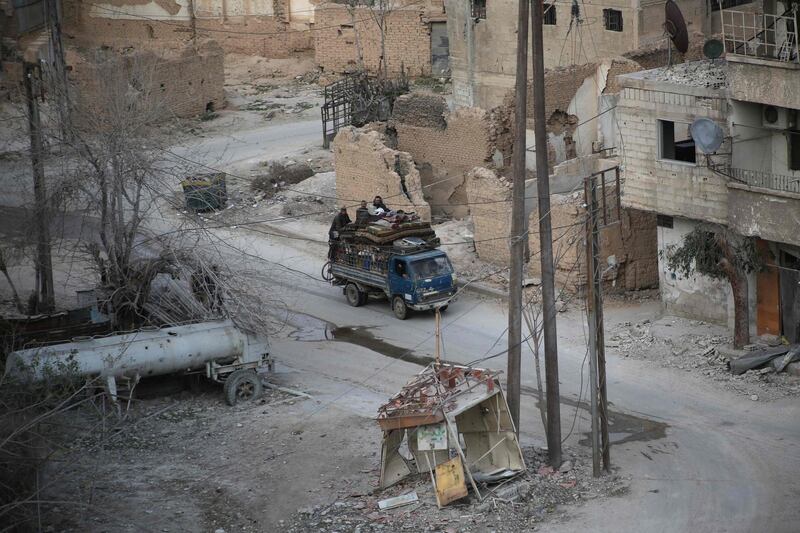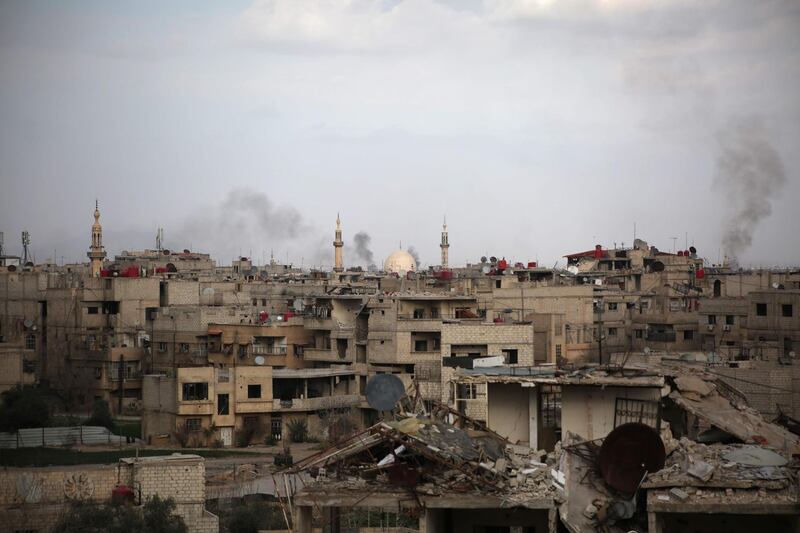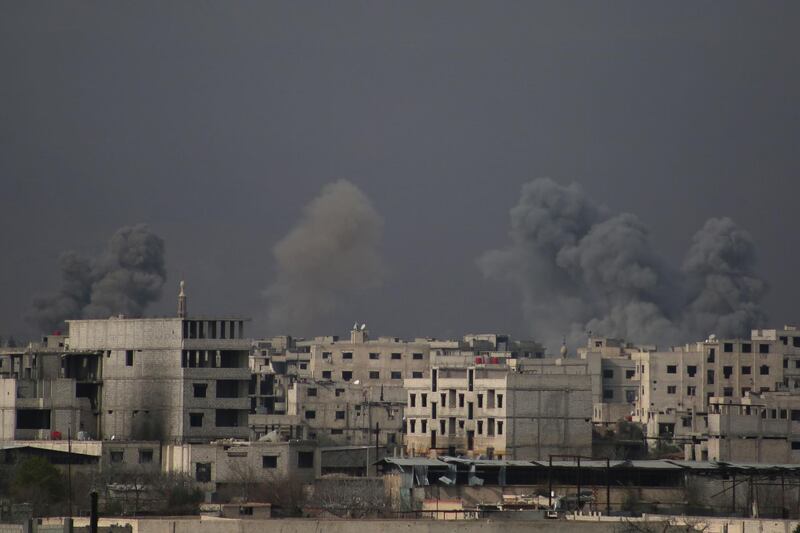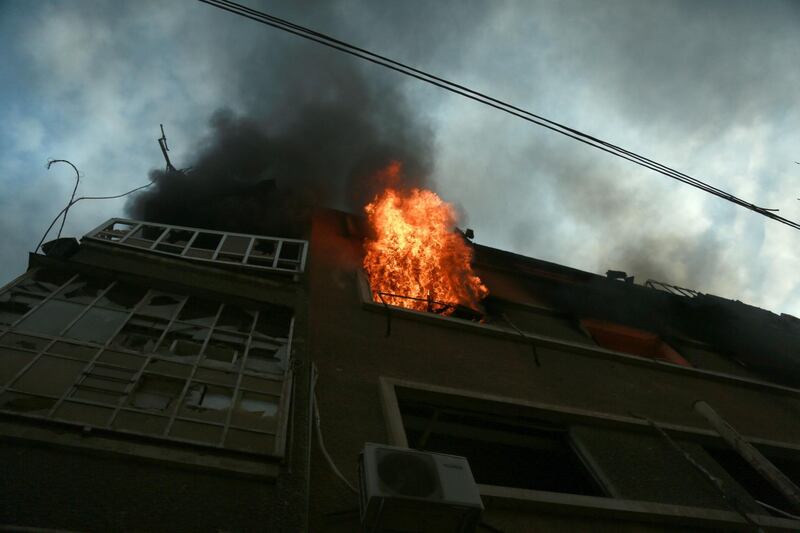Turkey's army and allied rebels on Tuesday said they had surrounded the Kurdish city of Afrin in northern Syria, sparking fear of another siege in the country.
While attention in recent weeks has focused on a ferocious regime assault on rebel-held Ghouta, in Syria's north Turkish forces and allied Syrian rebels have been advancing in their offensive against the Kurdish enclave of Afrin.
In a statement on Tuesday, the Turkish military said it had completely encircled Afrin city, home to some 350,000 people and defended by a Syrian Kurdish militia, the People's Protection Units (YPG).
Birusk Hasakeh, a YPG spokesman inside Afrin, denied the city had been totally besieged but said the last route leading out of it was being shelled heavily.
"If they do encircle the city, we will be ready for a long fight. We will resist," he said.
The Syrian Observatory for Human Rights said Turkish forces had moved to within firing range of that last access route, which leads to a pair of regime-held towns - essentially encircling Afrin and 90 villages to its west.
Sealing off Afrin city would be a key step in ousting the YPG, a vital partner for a US-backed coalition against ISIL, but seen by Ankara as "terrorists".
It remains unclear what Turkey's next move will be, but it may lay siege to Afrin while allowing civilians to leave to avoid a high-casualty offensive.
The Britain-based Observatory said Ankara was seeking to push civilians into either rebel-held or Syrian regime territory to allow for a "speedy military operation".
Abu Jaafar, a commander in the pro-Ankara forces waging Operation Olive Branch, said rebels were considering leaving an "exit route" for civilians.
"We will allow civilians... to leave so they will not be hurt in case [Kurdish] fighters hold out in the villages, neighbourhoods, or buildings inside Afrin," he told Agence France-Presse.
Hundreds of civilians were seen fleeing Afrin on Monday, with cars and buses piled high with personal belongings heading to regime-held areas further east.
Meanwhile on Monday the US warned it is ready to act in Syria if needed to end chemical attacks and "inhuman" scales of suffering and is pushing for a new 30-day ceasefire in Eastern Ghouta.
US Ambassador to the United Nations Nikki Haley told the Security Council that a ceasefire approved two weeks ago had failed and circulated a draft resolution calling for a 30-day truce in the rebel enclave and Damascus.
"This is no ceasefire. This is the Assad regime, Iran and Russia continuing to wage war against their political opponents," Ms Haley said.
Ms Haley recalled that President Donald Trump had ordered missile strikes on a Syrian air base in April last year in retaliation for a sarin gas attack blamed on President Bashar Al Assad's forces.
"We also warn any nation that is determined to impose its will through chemical attacks and inhuman suffering, most especially the outlaw Syrian regime: the United States remains prepared to act if we must," she added.
"It is not the path we prefer, but it is a path we have demonstrated we will take, and we are prepared to take again. When the international community consistently fails to act, there are times when states are compelled to take their own action."
__________________
Read more:
More than half a million killed in Syria's war
First female White Helmets rescuer killed in Syria
__________________
The US-drafted text seen by AFP would decide on a 30-day cessation of hostilities throughout Eastern Ghouta and Damascus City to begin immediately upon adoption.
The draft resolution would allow "safe, unimpeded and sustained access" for humanitarian aid convoys and "safe, unconditional, medical evacuations in Eastern Ghouta."
A Syrian opposition representative told the council at a separate meeting that military action was a feasible option to stop the violence and force the Syrian government to the negotiating table.
Hadi Al Bahra, of the Syrian negotiation commission, said "the threat, and if necessary use of limited military action" was needed to deter violations of the ceasefire.
On Monday, Syrian forces pounded two rebel towns in Eastern Ghouta, pressing on with a Russia-backed offensive that has so far allowed government fighters to retake nearly 60 per cent of the enclave.
At least 1,162 civilians have been killed, including 241 children in the nearly month-long offensive, according to the Syrian Observatory for Human Rights, which on Sunday put the death toll for the seven year conflict at 511,000.
More than 1,000 people, including many children, are in urgent need of evacuation in Ghouta, according to the United Nations.
In the Zamalka neighbourhood, an airstrike killed a member of the area's civil defense unit. The group, also known as the White Helmets, act as first responders to airstrikes and other emergencies.
Rifaat Idris was the fifth civil defense volunteer killed by strikes in Eastern Ghouta in the last week.
"People are still cramming in basements under the ground. We spend most of the time in these basements," said Mr Al Maamri, who lives in Zamalka.
"To be honest with you, the morale of the people is almost collapsed. Our steadfastness depends only on our belief in the divine providence," Mr Al Maamri said.
But Russian Ambassador Vassily Nebenzia said "the government of Syria has every right to try to remove the threat to the safety of its citizens."
"The suburbs of Damascus cannot remain a hotbed of terrorism," he said.
"There is a possibility for more resistance, there could be some negotiations, but not for surrender or expulsion. We are not against negotiations, but we are against expulsion and handing over our areas to Iran," said Yusef Al Bustani, a journalist in eastern Ghouta.
"Our situation today is bad, hard and very tiring. We consider our steadfastness and resistance a real miracle," Mr Boustani said.
"Even though we are very tired, our homes are gone and we lost most of what we own, we are still resisting. The revolutionaries are still fighting and the civilians try to do whatever they can to prepare themselves for anything."
